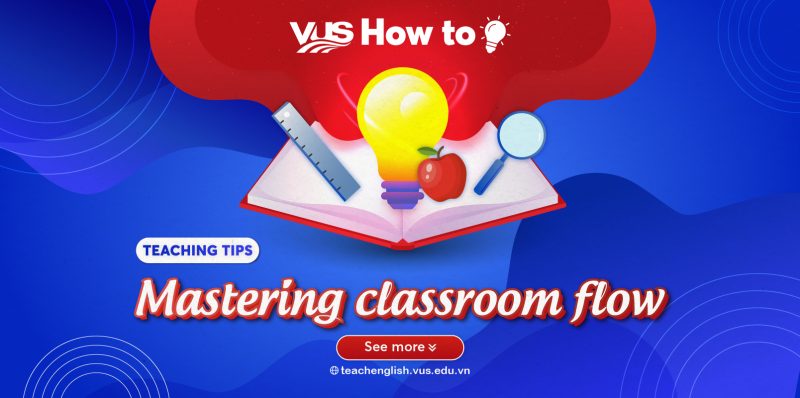👨🏫 𝗗𝗘𝗟𝗜𝗩𝗘𝗥 𝗔 𝗖𝗟𝗔𝗦𝗦 𝗪𝗜𝗧𝗛𝗢𝗨𝗧 𝗔 𝗛𝗜𝗧𝗖𝗛 – 𝗙𝗜𝗡𝗗 𝗢𝗨𝗧 𝗛𝗢𝗪!
🤔 Have you ever asked yourself:
“Why isn’t my student participating in any activities?”
“What games can brighten up the class?”
“How can I save time so the class isn’t rushed?”
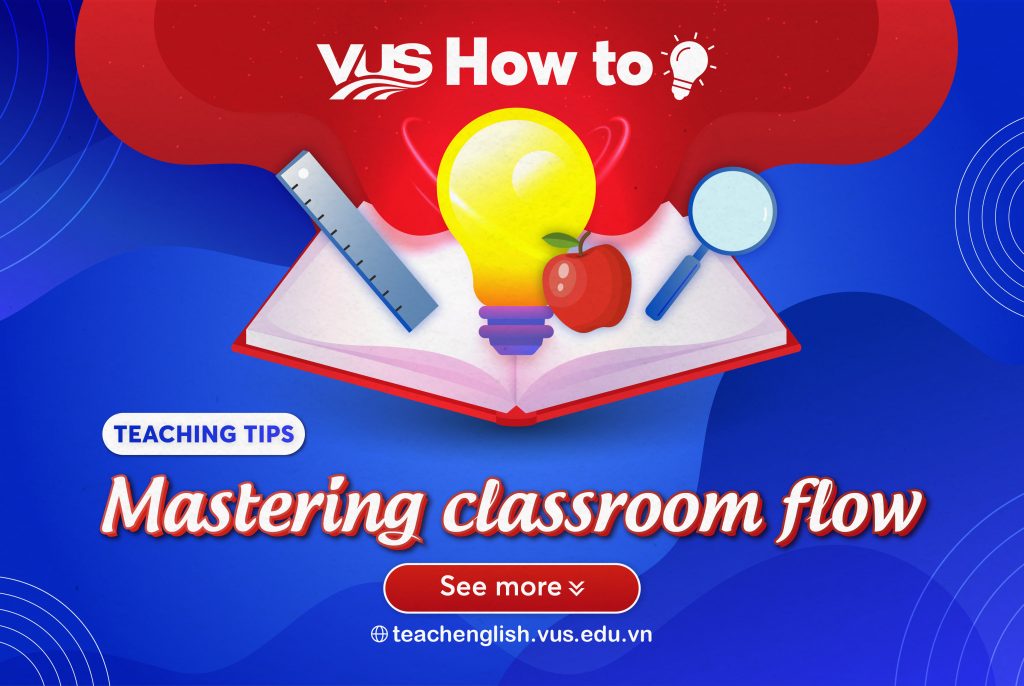
🥲 If you have wondered about these questions, perhaps your class is having some problems and isn’t going smoothly. This may range from shy students isolating themselves to the whole class not feeling happy or you yourself struggling with managing classroom time. Let’s take a look at how we can solve these troublesome problems via these photos.
MAKE WAY FOR THE SHY TO SHINE
Just like a mini version of society, there are all kinds of students in your class. One of the most common would be the shy students, also known as “wallflowers”, those who usually distance themselves from the class. Too afraid to take part in activities, too unsure to give answers, you name it. Shy students can slow your lesson down as you need to be patient with them, but don’t try to rush it by putting them under the spotlight because haste only makes waste.
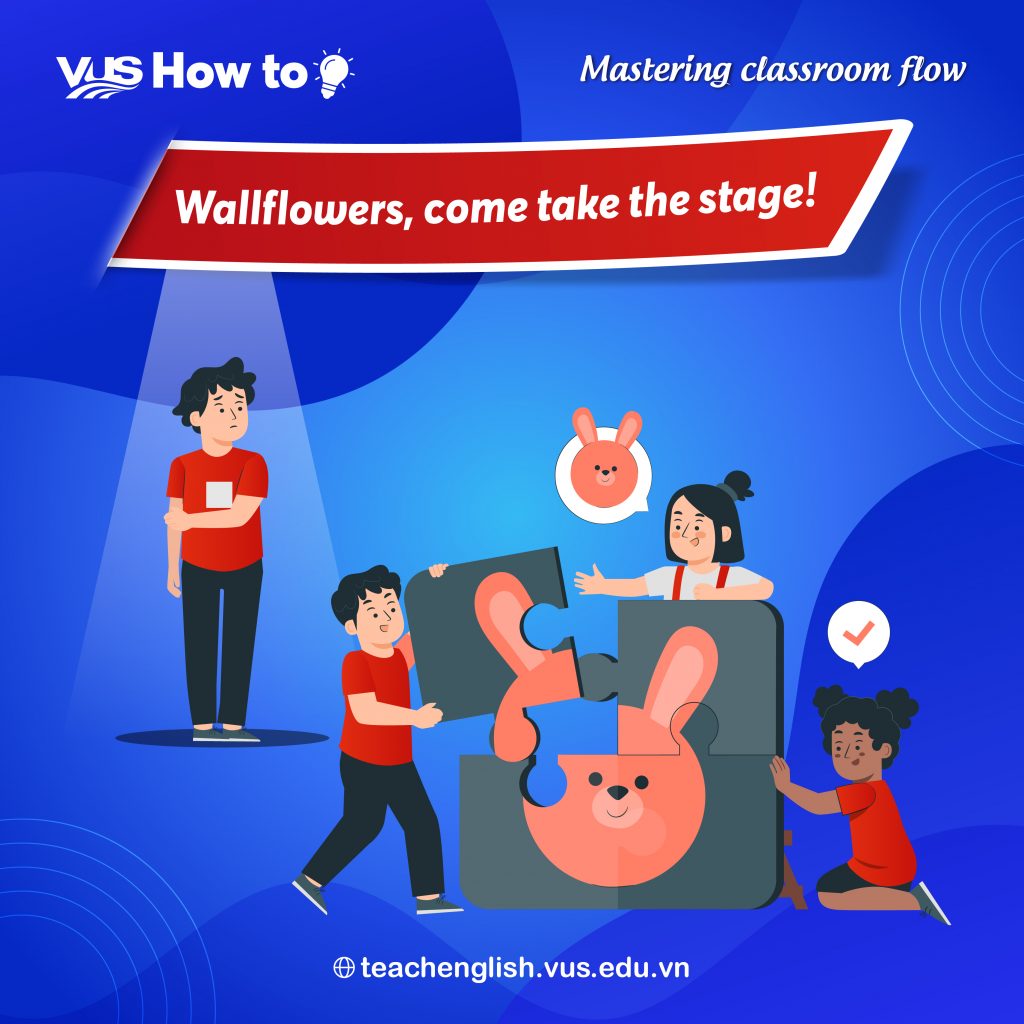
👉 𝗦𝘁𝗮𝗿𝘁 𝘄𝗶𝘁𝗵 𝘀𝗺𝗮𝗹𝗹 𝗴𝗿𝗼𝘂𝗽 𝗼𝗿 𝗽𝗮𝗶𝗿 𝘄𝗼𝗿𝗸: this narrows down the number of faces students have to talk to, which makes it less competitive and stressful for them so they can open up more. This type of activity is also ideal for students to discuss, peer check, or practice speaking by role playing; thus enhancing their confidence and competency.
👉 𝗧𝗿𝘆 𝗽𝗮𝗶𝗿𝗶𝗻𝗴 𝘁𝗵𝗲𝗺 𝘄𝗶𝘁𝗵 𝗲𝘅𝘁𝗿𝗼𝘃𝗲𝗿𝘁𝗲𝗱 𝘀𝘁𝘂𝗱𝗲𝗻𝘁𝘀 so the high energy level can pull them up and help them become more sociable. Be sure to monitor them so both students are able to share their ideas.
👉 𝗔𝘀𝗸 “𝗰𝗵𝗼𝗶𝗰𝗲” 𝗾𝘂𝗲𝘀𝘁𝗶𝗼𝗻𝘀 that you’re sure they can answer. Instead of yes/no questions, you can ask them to select from a range of options. For example, “What do you want for dinner? Hamburgers, spaghetti or pizza?”. By responding to these questions, students can practice pronouncing the words instead of just giving simple yes/no answers. Open-ended questions might pose difficulties because they have to say more than they are willing to, so start simple and slowly work your way up.
LEARNING VIA PLAYING ISN'T
A BAD THING
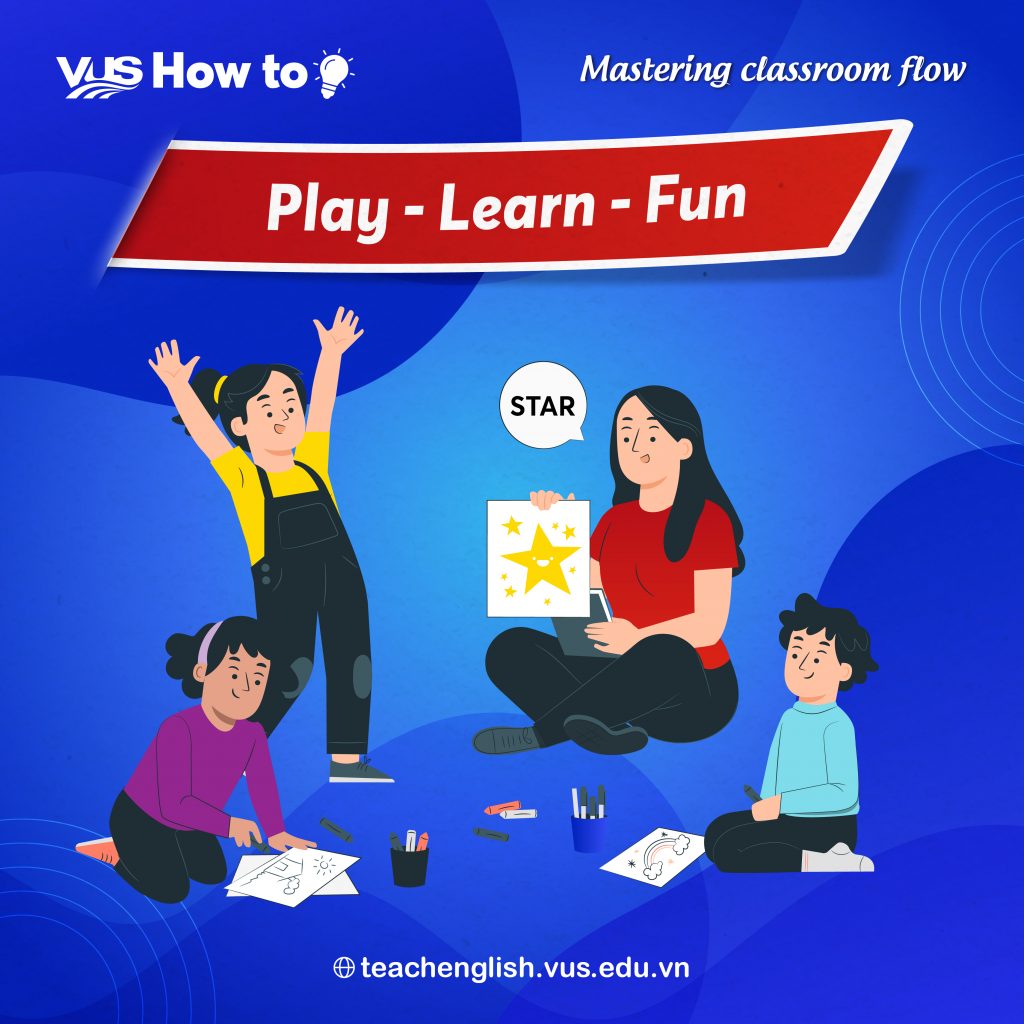
When students play games, they become more interested in their learning, taught knowledge is reinforced and class positivity is improved. Teachers should incorporate games in key periods of the class such as lesson revision or practice. Here are some suggestions so you can keep the classroom fun and effective:
👉 𝗠𝘂𝘀𝗶𝗰𝗮𝗹 𝗰𝗵𝗮𝗶𝗿𝘀: Students walk around the chairs while you play some music. Stop the music randomly and have the students sit down as quickly as possible. The student left standing up has to read out loud the words on the flashcards. This adds the fun element to the vocabulary memorizing process.
👉 𝗛𝗼𝘁 𝗽𝗼𝘁𝗮𝘁𝗼: Students sit in a circle and pass a ball around the circle while music plays in the background. If one drops the ball, they are out. When the music stops, the person holding the “hot potato” has to read out loud the words on the flashcards.
👉 𝗛𝗼𝘁 𝘀𝗲𝗮𝘁: Divide your class into groups, pick one student from each group to take the “hot seat”, which is put at the front of the class and faces the students. Once a word is on the board, ask the other students to describe it using actions, synonyms, or antonyms so the student in the “hot seat” can determine what it means.
One great thing about activities like these is that they are fun, easy to play and can be used in every age group or level. Try them and see your class enjoying themselves while learning.
THE TEACHING ASSISTANTS ARE THERE FOR YOU
If you teach very young or young learners classes, VUS will provide a teaching assistant to help you out during lessons. Don’t forget to involve them! TAs are often university students and are very energetic, so they can be a great help in your class. Here are some ways how they can assist you:
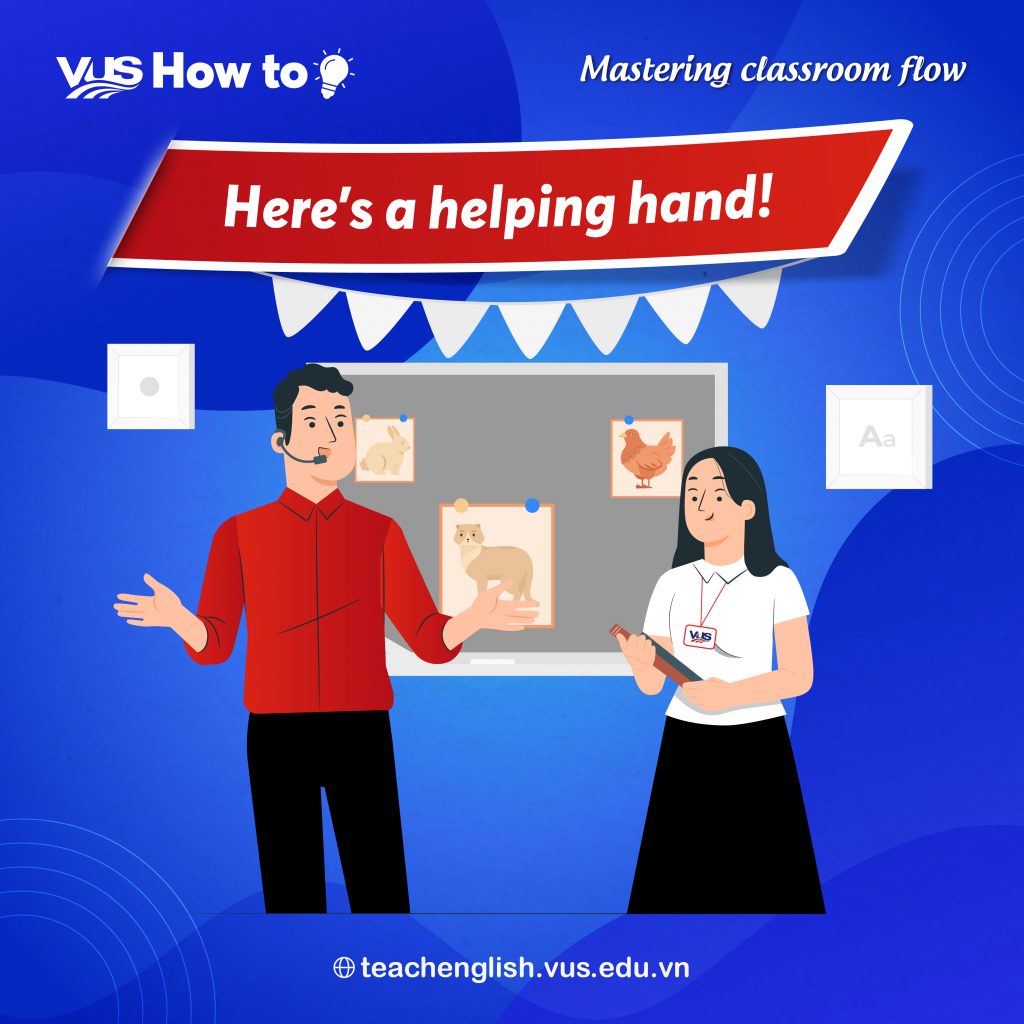
👉 𝗗𝗲𝗺𝗼𝗻𝘀𝘁𝗿𝗮𝘁𝗶𝗻𝗴 𝗮𝗰𝘁𝗶𝘃𝗶𝘁𝗶𝗲𝘀: As discussed previously, showing the students how to do a class activity is much more effective than just giving verbal instructions, especially in young kids classes. Having a TA turning your words into actions can save you a lot of time, and students get excited when they see their teacher playing the game!
👉 𝗥𝗲𝘃𝗶𝘀𝗶𝗻𝗴 𝗹𝗲𝘀𝘀𝗼𝗻𝘀: Have you ever had your students forgetting the lessons you taught them the day before? And you have to spend some time to remind them what they’ve learned? This will not be a problem if you have a TA in your class. They are responsible for helping students review previous lessons before the class starts and keep the class going well.
✨ If you find this post useful, please share it with your friends and follow us for more useful tips. ✨In case you’ve missed our previous posts, you can check them out here:
▪️ Part 1: Keeping students engaged: https://vus.link/J3wLG
#VUSEnglishTeachers #TeachEnglishAtVUS #Vietnamteachingjob
———————————————
🔥 For the best English teaching job in Vietnam, look no further than VUS. Please visit our website to learn more about the school and apply:
🌏 https://teachenglish.vus.edu.vn/

